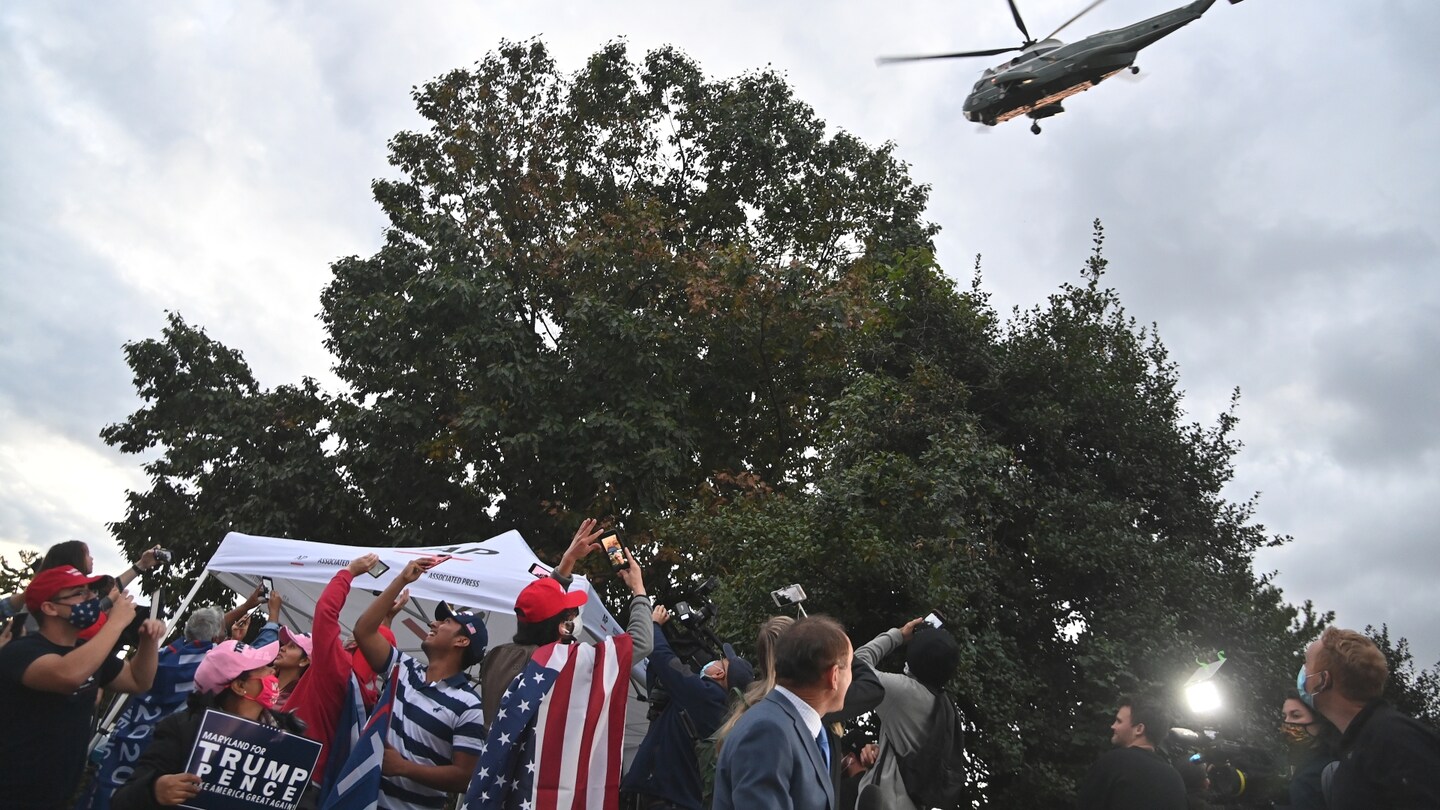Trump’s fearlessness of coronavirus is powered by the type of healthcare only he gets

“This is an incredible hospital — Walter Reed,” he said in a video tweeted Monday. “The work they do is just absolutely amazing. And I want to thank them all — the nurses, the doctors, everybody here.”
Reflecting on his stint in the hospital, he added:
“It’s been a very interesting journey. I learned a lot about covid. I learned it by really going to school. This is the real school. This isn’t the ‘Let’s read the books’ school. And I get it, and I understand it, and it’s a very interesting thing, and I’m going to be letting you know about it.”
Trump was released Monday from Walter Reed National Military Medical Center, three days after being hospitalized there with covid-19, the disease that has killed more than 200,000 Americans since March.
As the head of the U.S. government, Trump is expected to receive exceptional health care. Having the head of our country’s health in question is a national security issue, so it makes sense that he’d receive care beyond what is standard. The problem is, he now wants to use his story to tell a story of perseverance, when it’s pretty glaring that not everyone would be able to bounce back.
Trump’s condition was serious, and it’s likely anyone in his position would be fearful. After his blood oxygen levels dropped twice, he was given a steroid typically given to seriously ill coronavirus patients. But in a tweet, he appeared to minimize the seriousness of the illness by encouraging people to not “be afraid” of it.
Fear is a given for many Americans trying to navigate life during a pandemic. While Trump will be undergoing treatment for the virus even after his departure from the hospital, many Americans don’t have that same privilege. Trump’s exceptional health care is likely part of the reason he was released Monday evening.
“Over the past 24 hours, the president has continued to improve,” said White House physician Sean Conley, who noted that Trump had “met or exceeded all standard hospital discharge criteria,” although he “may not entirely be out of the woods yet.”
Trump received a dose of an experimental antibody cocktail aimed at reducing virus levels in covid-19 patients and is expected to receive another dose. The medication was made by Regeneron Pharmaceuticals, and like many other experimental treatments is usually not available to patients unless they are a part of a clinical trial.
The campaign’s communications director argued Monday that this experience allows Trump to connect with other coronavirus survivors in a way that his Democratic rival Joe Biden cannot.
“He has experience — now — fighting the coronavirus as an individual,” Erin Perrine said on Fox News. “Those firsthand experiences, Joe Biden, he doesn’t have those.”
The improvement in Trump’s health is certainly in part due to him receiving superior — and much of it taxpayer funded — medical care. That’s coming as the Supreme Court will consider the constitutionality of the Affordable Care Act next month, with the administration backing dismantling the law that provides many Americans their coverage.
Given that health care is a top issue for most voters, the difference between what the president received and what most Americans experienced did not go unnoticed by some of those critical of his policies.
Based on what we know of Trump’s condition, especially late last week, it’s hard to imagine anyone not feeling fearful in his position. But it’s also hardly grounds for him to be able to speak to the fear of others not in such a protective cocoon. Some medical professionals have been so traumatized by the experience of caring for patients that they have ended their own lives. Some patients have died alone in intensive care wards separated from their family members. Others have tried to navigate without any health care at all.
And the pandemic has been accompanied by an economic downturn that saw more than 22 million Americans lose their jobs in the first three months of the crisis. For many of them, that has also meant a loss of health insurance, leaving some Americans to have to choose between worrying about their health and their pocketbook. Kaiser Family Foundation, a health policy nonprofit, released a report stating that uninsured coronavirus patients will cost hospitals an estimated $13.9 billion to $41.8 billion.
Trump’s posture on this — a wealthy and powerful man praising his own government-provided health care — has created a perfect opening for advocates of expanding access to health care to make their case.
Attention to inequalities in health care will continue to be a focus of many voters during the remaining weeks of the 2020 campaign, but the fact that the president’s own health care is a key part of that conversation has added an unexpected twist to the conversation that will highlight the differences like never before.






